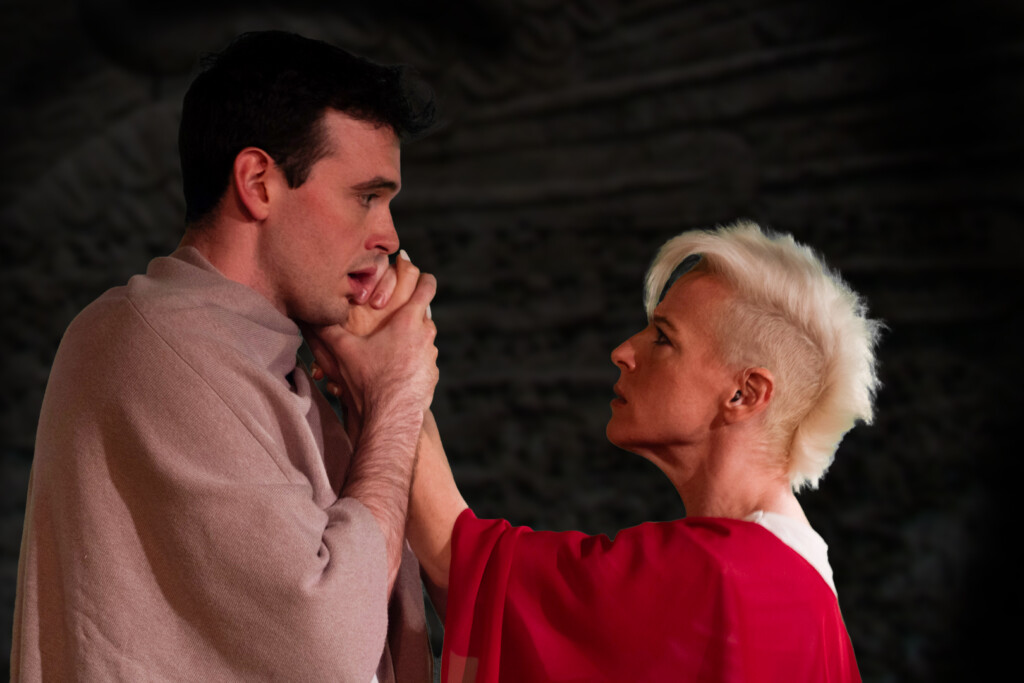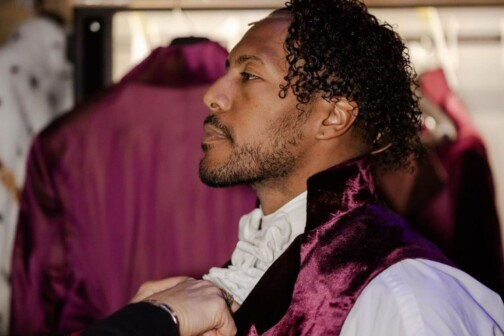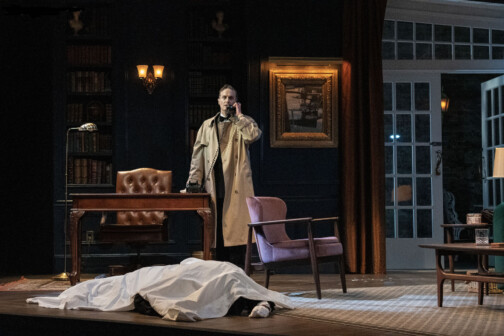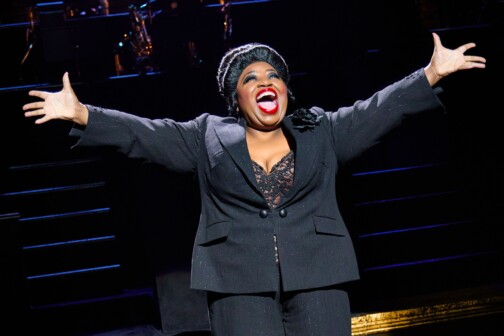For the final production of its 40th season, the Undermain Theatre in Deep Ellum is going back to where it began. Known for its rich history of spotlighting new playwrights and experimental works, Undermain will bring an innovative production of the oldest surviving Western play to the stage in its upcoming production of The Persians.
Written in 472 B.C. by Aeschylus, The Persians is a tragedy dramatizing the downfall of the Persian Empire after its invasion of Greece and defeat in the Battle of Salamis. Bruce DuBose, Undermain Theatre’s co-founder and producing artistic director, explains that the play is unique among the Greek tragedies as a production based on recent events of that time. In fact, Aeschylus was a soldier who lost his brother in the Battle of Marathon. “It’s more like the way we experience a lot of plays that are maybe about contemporaneous events to our lives,” DuBose says.
Undermain Theatre will produce Ellen McLaughlin’s 2003 adaptation of the play from May 2-26, with opening night scheduled for May 4. McLaughlin herself saw the play as drawing parallels to current conflicts, specifically the 2003 invasion of Iraq. “The adaptation is so good and so contemporary,” says Kara-Lynn Vaeni, the director of the Undermain Theatre production.
The Persians follows Queen Atossa and a chorus of elders as they await the arrival of Atossa’s son, King Xerxes, whose military mistakes and hubris led to the Persian Empire’s devastating defeat. On one hand, The Persians glorifies the unexpected victory of the Greek forces in battle. On the other, it’s a stark look at the devastating effects of war that takes an almost sympathetic approach to the Persian Empire’s massive losses. Despite the fact that a Greek soldier wrote the story for the victors of the conflict, Vaeni says Aeschylus’ approach allows for different interpretations of the play’s messaging. “I think he wrote it so generously that there’s a bunch of different ways to engage with it,” Vaeni says.
“I think that it’s a piece about home and a piece about war,” says Mac Welch, who plays Xerxes. He sees the production as an opportunity for the audience to analyze their own relationship with their country and what their collective perspective on war has become.
Welch was drawn to The Persians after speaking with Vaeni during casting about her approach to the play and the rehearsal process. In particular, he found her interpretation of the Greek chorus and the play’s ability to bring audiences into the ancient story to be an appealing aspect that differentiates the play from other Greek tragedies he’s performed in.
Vaeni says the Greek chorus in The Persians disagree with one another throughout the play, which veers away from the traditional Greek chorus’ unified voice and perspective. She’s worked with the chorus members to help them overcome their natural instincts to sound agreeable, instilling in the cast the importance of emphasizing each member’s point of view. The chorus additionally plays a pivotal role in a later scene channeling Xerxes’ dead father, King Darius, which DuBose spotlights as a “very exciting” interpretation.
Through the rehearsal process, Vaeni also advised the cast to tap into the stages of grief for their performances, encouraging them to express emotion through both their verbal and physical acting onstage. It’s an approach not necessarily aimed at getting the actors to actually feel the same emotions as their characters, but to take audiences “on a ride” by delivering multifaceted and nuanced performances onstage. “I want the audience to have an experience, and I don’t want their experience to be watching actors cry,” Vaeni says.
Marianne Galloway, the show’s Atossa, found the process “really helpful” for her role. She connects with her character’s “timely” arc as Atossa shifts from “feeling powerless at the beginning” to coming into her own amid the uncertainty and upheaval of the time.
Overall, DuBose says Vaeni and the cast have done an “amazing job of breathing new life into the Greek tragedy format, and especially this play.” He views going back to the oldest drama and producing The Persians as an opportunity for introspection during Undermain’s “landmark” 40th season.
He hopes audiences who come out for the season-ending production “experience some form of catharsis, which I think is Greek theater’s real gift to the whole dramatic form…particularly theater and the live experience.”
Undermain Theatre presents The Persians from May 2 to May 26. Find tickets and more information here.
Author







